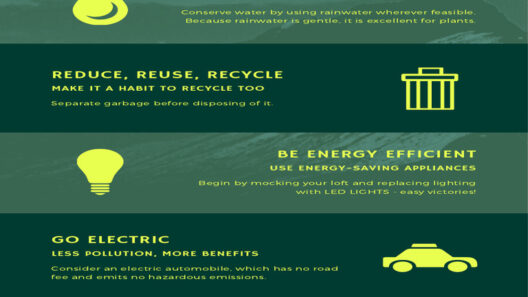As the global community increasingly grapples with the challenges posed by climate change, energy conservation has emerged as a pivotal focus for both individuals and corporations. Among various energy sources, oil continues to maintain its prevalence in our daily lives. However, the demand for efficiency and sustainability has stimulated the development of energy-conserving oils. This article delves into several brands that specialize in producing oil with a keen focus on efficiency and environmental responsibility.
The term “energy conserving oil” may seem paradoxical. Traditionally, oil is associated with depletion and environmental damage. Yet, advancements in technology and a shift in consumer demand have led some brands to meticulously engineer their products to reduce energy consumption. The underlying philosophy is simple: When oil is used more efficiently, less of it is needed to achieve the same results, translating into lower carbon emissions and a more sustainable resource management approach.
One notable brand that epitomizes the energy efficiency agenda is Mobil 1. Famed for its synthetic motor oils, Mobil 1 employs advanced formulations that not only minimize friction but also enhance fuel economy. Their oils are designed to maintain viscosity across a range of temperatures, which ensures optimal engine performance while minimizing the energy wasted through heat and friction. The company’s commitment to high-performance lubricants signifies a step forward in the reduction of unnecessary fuel consumption.
Another noteworthy contender in the energy-conserving oil arena is Royal Purple. This brand has garnered acclaim for its high-performance synthetic oils that promote efficiency and longevity. Royal Purple’s proprietary formulas are fortified with advanced additives, enabling engines to operate smoothly and reducing the energy lost to friction. By meticulously balancing chemical compounds, Royal Purple not only improves engine performance but also extends the intervals between oil changes, ultimately leading to decreased waste and environmental impact.
The allure of Castrol as a brand cannot be overlooked. Known for its innovative formulations, Castrol has launched several lines that specifically target energy conservation. The Castrol EDGE range, for instance, employs Fluid Titanium Technology, which reacts under pressure to provide outstanding protection and performance. This technology signifies an important breakthrough in mineral and synthetic oil formulations. By ensuring superior engine protection, Castrol EDGE allows vehicles to run more efficiently. The result is a noticeable improvement in fuel economy, highlighting the brand’s deep commitment to sustainability.
In the realm of environmentally friendly oils, the product line from Valvoline also deserves mention. Valvoline’s Advanced Full Synthetic Motor Oil is designed to offer peak performance while being more environmentally conscious. This product line claims to improve engine efficiency and durability. With a unique focus on enhancing fuel economy, Valvoline aims to satisfy the dual demands of performance and eco-friendliness. Their active participation in the promotion of sustainability initiatives further accentuates their commitment to energy conservation.
While traditional oil production methods have been scrutinized for their environmental impact, the emergence of bio-based oils presents an intriguing alternative. A brand that stands out in this category is BioBlend. The company produces biodegradable and renewable oils derived from plant sources, such as soybeans and sunflower seeds. BioBlend has positioned itself as a frontrunner in the green oil revolution. Through its commitment to producing sustainable products, this brand not only addresses energy conservation but also provides a pathway toward a more sustainable future. The tangible reduction in reliance on non-renewable resources aligns with broader environmental goals.
As discussions around renewable energy intensify, the question arises: What role do energy-conserving oils play in a future dominated by alternatives? There exists the perception that oil is an antiquated energy source. However, its role in the energy mix cannot be entirely dismissed. The refinement and modernization of traditional oils present a significant opportunity to leverage existing infrastructure while progressively improving efficiency. As such, oil can serve as a transitional fuel, promoting energy conservation while alternative sources continue to develop.
The journey towards energy conservation in the oil industry is not merely about bottom lines. It reflects a growing awareness of our collective responsibility towards the environment. As consumers demand more accountability from manufacturers, brands are increasingly stepping up to the challenge. Implementing rigorous standards for efficiency, improving product formulations, and investing in sustainable practices showcase an industry that is gradually pivoting towards sustainability.
The popularity of energy-conserving oils can be attributed not just to their performance advantages but also to a burgeoning consumer consciousness around environmental issues. As consumers become more informed, their choices reflect a preference for brands that adopt sustainable practices. This shift in consumer behavior signifies an important social evolution, where ecological responsibility and efficiency have become essential considerations.
In conclusion, the energy-conserving oil sector presents a fascinating intersection of technology, sustainability, and consumer accountability. Brands like Mobil 1, Royal Purple, Castrol, Valvoline, and BioBlend exemplify the movement towards enhanced efficiency in oil production and consumption. As the world continues to confront the ramifications of fossil fuel reliance, the evolution of oils that prioritize energy conservation serves as a hopeful indication of progress. The ultimate goal is to foster an energy landscape that respects the planet while meeting the demands of modern life, enabling future generations to thrive.








